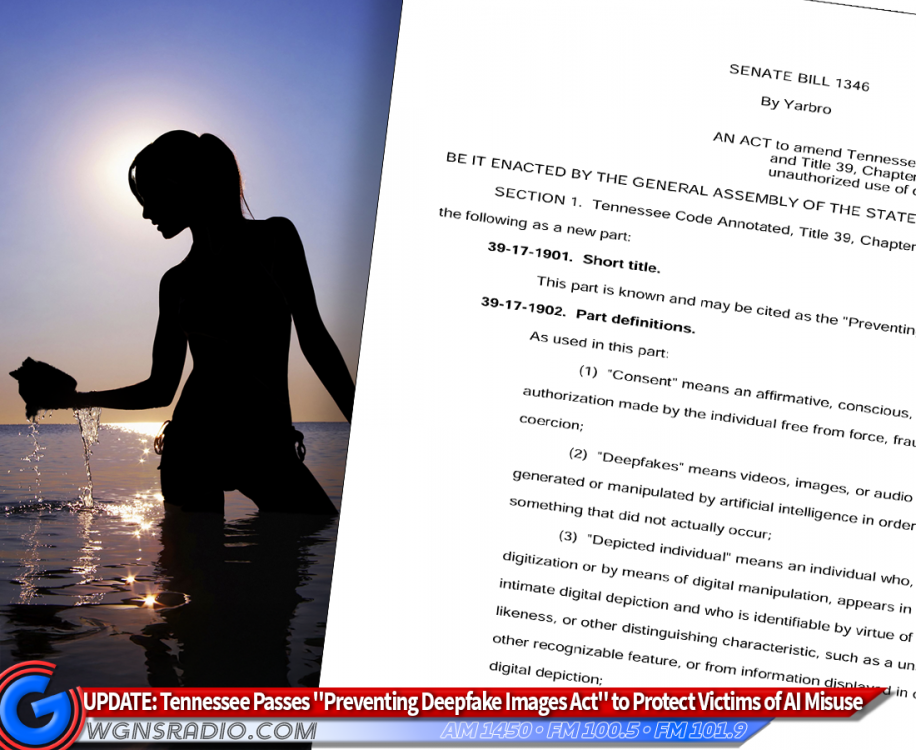RUTHERFORD COUNTY, TN - Tennessee continues to lead the nation in regulating artificial intelligence (AI) technology. Just a year after becoming the first state to tackle AI's impact on the music industry, lawmakers have now passed legislation to address the misuse of AI in creating and sharing harmful images.
House Bill 1299 and Senate Bill 1346, together known as the Preventing Deepfake Images Act, passed the Tennessee Senate on April 21, 2025, and now await the governor's signature. The law creates a legal path for victims to sue if fake or real private images of them are shared without their consent. If the disclosure is intentional and meant to cause harm, offenders could face significant financial penalties—or jail time…That was State Representative Mike Sparks of Rutherford County.
The new law allows victims to claim damages, including emotional distress, or even recover profits made by the wrongdoer. Courts can also work to block the spread of harmful images and protect the victim’s identity during legal proceedings. Sharing such images to hurt someone's reputation or finances can lead to felony charges, depending on the severity and consequences of the act...
Importantly, the bill protects internet and telecommunications companies from being held liable if they act in good faith to stop the spread of these images.
The legislation also clarifies that people must have intentionally shared the images to be held responsible, ensuring that only purposeful misuse is punished.
With this new step, Tennessee reinforces its leadership in balancing the benefits of AI innovation with strong protections against its potential harms.
-
Tennessee was the first state to pass a law specifically addressing AI-generated sound and music. This happened in March 2024 with the ELVIS Act ("Ensuring Likeness, Voice, and Image Security"), which updated the state's right-of-publicity laws to protect musicians and artists against unauthorized AI recreations of their voices and likenesses.
-
California has also been active. In 2023 and 2024, California legislators proposed several bills related to AI, especially focusing on deepfakes in political ads and protecting actors' likenesses in entertainment. California already has strong "right of publicity" laws, but it's been moving to update them to better cover AI issues.
-
New York passed updates to its right of publicity laws in 2020 (before the AI boom fully hit) that included "digital replicas" — but it was ahead of its time, and those laws now apply to some AI concerns, particularly for deceased celebrities.
-
Illinois is important too because it has the Biometric Information Privacy Act (BIPA), which, although older (passed in 2008), is now being applied in court cases to protect people’s faces and voices from unauthorized AI use. Illinois lawmakers have discussed updates, but no new AI-specific bill had passed yet as of early 2025.





